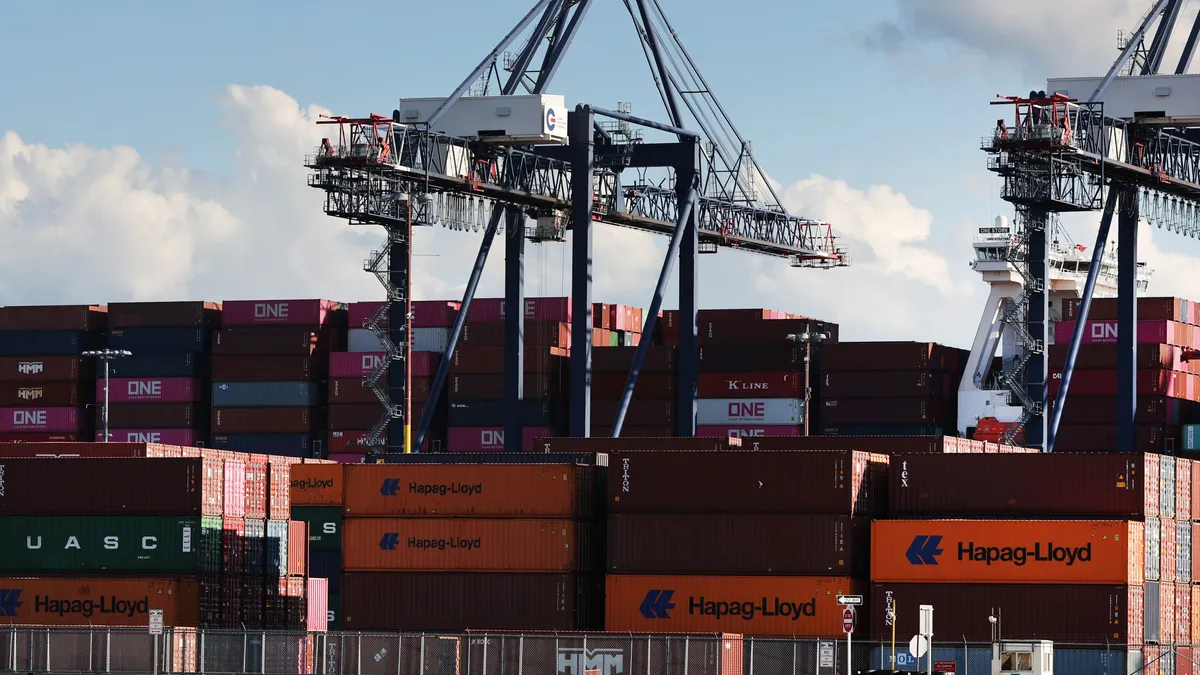Dive Brief:
- Labor contract negotiations covering port workers on the East and Gulf coasts are expected to begin soon with local-level bargaining slated to wrap up Friday, according to a joint announcement from union and employer representatives.
- The current six-year contract covering workers at ports from Maine to Texas will expire on Sept. 30. Both the International Longshoremen's Association — with 85,000 members in its ranks — and the United States Maritime Alliance (USMX) say they are committed to reaching a new agreement prior to that date.
- “The ILA and USMX expect to continue the success of our 2012 and 2018 Master Contract negotiations where two landmark six-year agreements were achieved without any disruption or delays in shipment of cargo," ILA President Harold J. Daggett and USMX Chairman and CEO David F. Adam said in a joint statement.
Dive Insight:
Although both sides want to reach a deal without any disruption, Daggett warned ILA locals last year to prepare for a strike if an agreement isn't achieved by Sept. 30, adding that the union won't extend the current pact as it pursues a landmark deal.
A strike would add to the labor unrest shippers have had to account for in recent years, sparking heavy disruptions for U.S. supply chains reliant on East Coast and Gulf Coast imports.
"Over 13 million containers of import cargo pass through East and Gulf Coast ports each year, plus export containers, automobiles, bulk cargo, and more," said Jess Dankert, vice president for supply chain at the Retail Industry Leaders Association, in a blog post Wednesday. "These numbers can represent as much as 56% of all U.S.-inbound containers in a given month."
However, Dankert noted that the ILA hasn't had a strike since 1977, with contract negotiations not as tumultuous historically as those seen at West Coast ports. Still, shippers may tap into mitigation plans based on risk alone. It's something many businesses did during West Coast ports labor negotiations prior to a deal being reached in June 2023.
"It may seem early, but retailers are making decisions right now about how to mitigate or avoid the delays and costs of possible East and Gulf Coast port disruptions in the Fall," Dankert said. "After all, no one needs a shipping container full of Halloween costumes in November."















